- At every Remington College campus, we provide training with an emphasis on teaching the specific job-related skills that employers look for when they make hiring decisions.
School Highlights
Remington College-Mobile Campus serves 378 students (100% of students are full-time).
The college's student:teacher ratio of 10:1 is lower than the state community college average of 20:1.
Minority enrollment is 77% of the student body (majority Black), which is more than the state average of 43%.
Quick Stats (2025)
- Enrollment: 378 students
- Private-state tuition: $15,995
- Acceptance Rate: 81%
- Student:teacher ratio: 10:1
- Minority enrollment: 77%
- Source: Integrated Postsecondary Education Data System (IPEDS)
Top Rankings
Remington College-Mobile Campus ranks among the top 20% of public schools in Alabama for:
Category
Attribute
School Resources
School Overview
The teacher population of 39 teachers has stayed relatively flat over five years.
Remington College-Mobile Campus
(AL) Community College Avg.
Carnegie Classification
Associate's Colleges: High Career & Technical-Mixed Traditional/Nontraditional
Associate's Colleges: Mixed Transfer/Career & Technical-High Traditional
Institution Level
At least 2 but less than 4 years
At least 2 but less than 4 years
Institution Control
Private not-for-profit
Public
Total Faculty
39 staff
153 staff
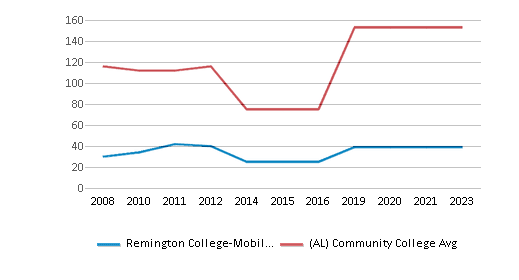
Student Body
The student population of Remington College-Mobile Campus has grown by 23% over five years.
The student:teacher ratio of 10:1 has increased from 6:1 over five years.
The Remington College-Mobile Campus diversity score of 0.52 is less than the state average of 0.60. The school's diversity has declined by 6% over five years.
Total Enrollment
378 students
2,464 students
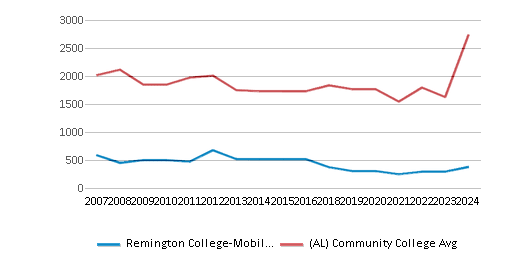
Student : Teacher Ratio
10:1
20:1
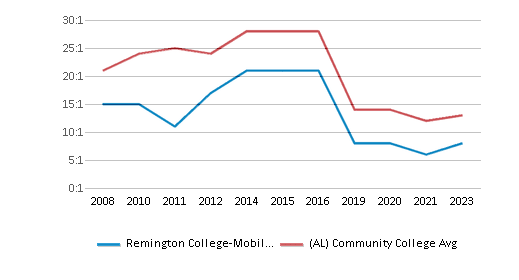
# Full-Time Students
378 students
873 students
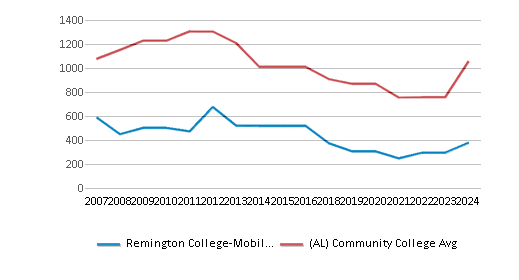
# Part-Time Students
n/a
1,855 students
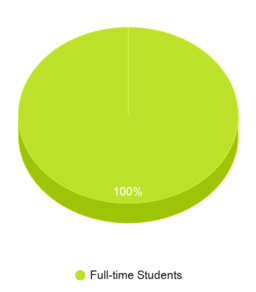
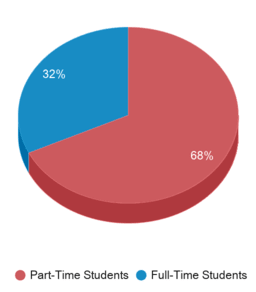
# Enrollment Undergraduate
378 students
422 students
# Full-Time Undergraduate Students
378 students
873 students
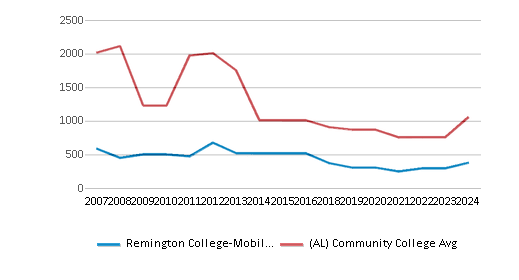
# Full-Time Graduate Students
n/a
11 students
# Part-Time Undergraduate Students
n/a
2,077 students
# Part-Time Graduate Students
n/a
30 students
Total Dormitory Capacity
n/a
168 students
% American Indian/Alaskan
n/a
n/a
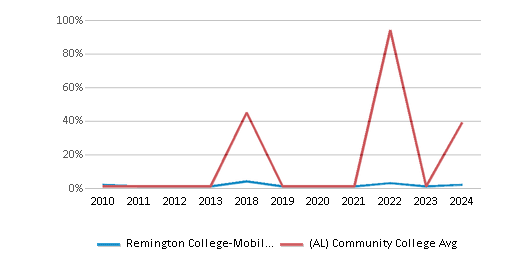
% Asian
n/a
2%
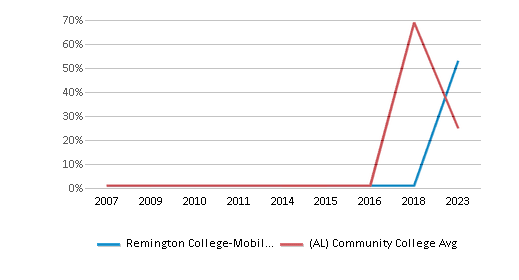
% Hispanic
1%
6%
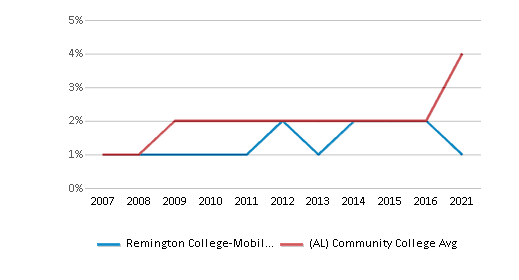
% Black
65%
27%
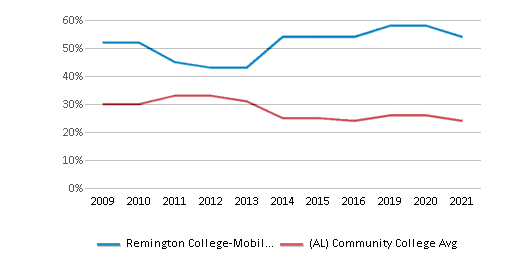
% White
23%
57%
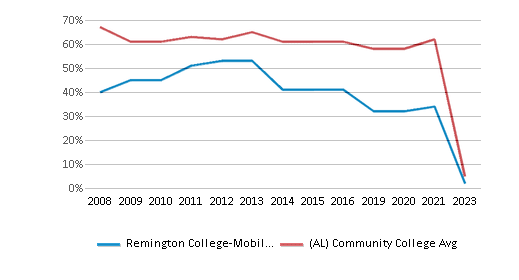
% Hawaiian
7%
n/a
% Two or more races
2%
4%
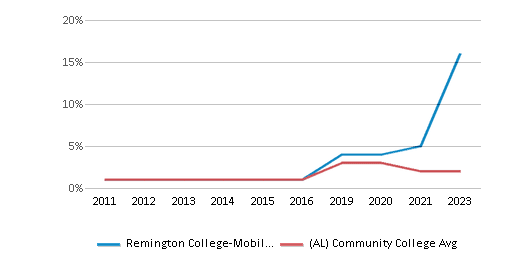
% Non Resident races
n/a
1%
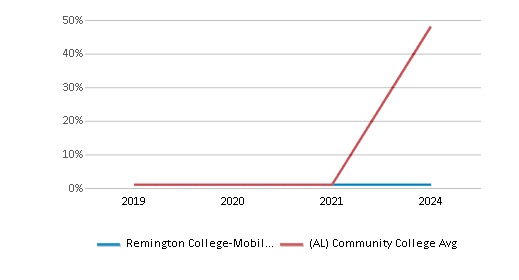
% Unknown races
2%
3%
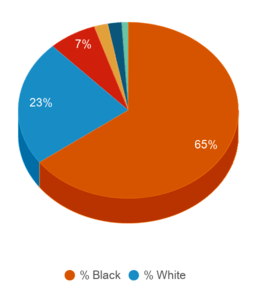
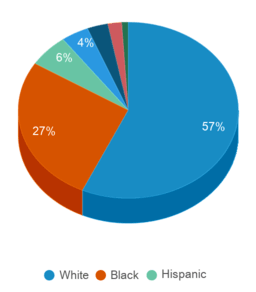
Diversity Score
0.52
0.60
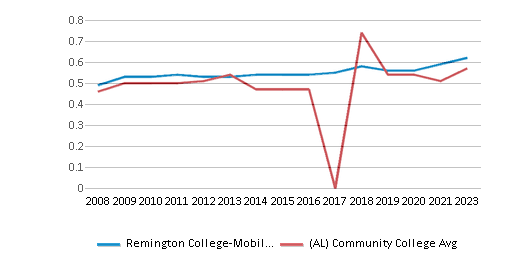
College Completion Rate (Students who graduate in less than 4 years)
0.4033%
0.2683%
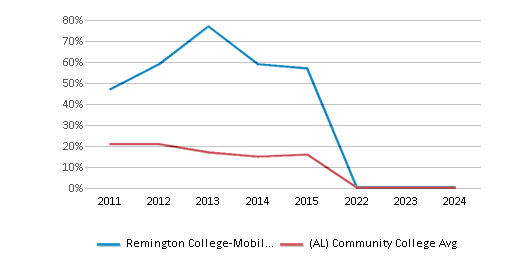
College Completion Rate (Students who graduate in 4 years or more than 4 years)
3.19%
0.3%
Average Graduate Earnings (10 Years)
$26,700
$29,700
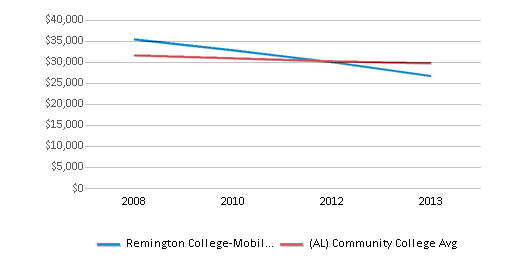
Tuition and Acceptance Rate
The private state tuition of $15,995 is more than the state average of $13,954. The private state tuition has declined by 6% over four years.
Private State Tuition Fees
$15,995
$13,954
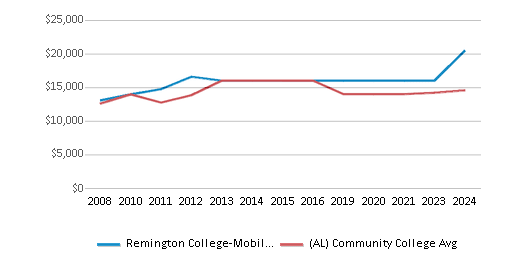
% Students Receiving Some Financial Aid
100%
90%
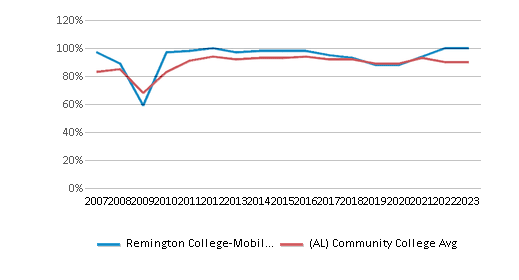
Median Debt for Graduates
$13,910
$10,500
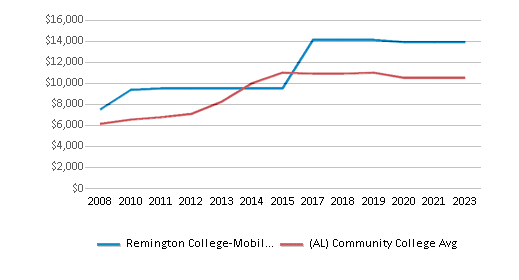
Median Debt for Dropouts
$4,750
$5,500
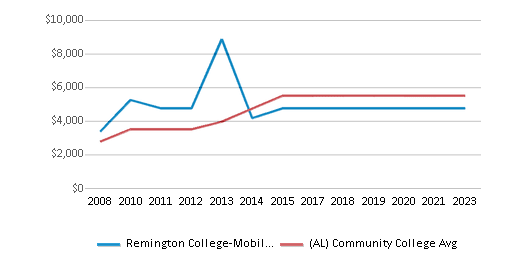
Acceptance Rate
81%
81%
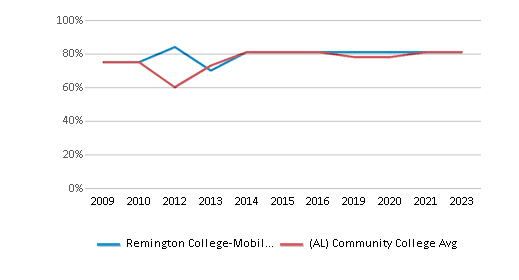
SAT Reading
n/a
530
SAT Math
n/a
545
ACT Composite
n/a
23
ACT English
n/a
21
ACT Math
n/a
22
Source: 2024 (or latest year available) Integrated Postsecondary Education Data System (IPEDS)
School Notes
- Remington Colleges' programs are designed to be academically sound and relevant to the needs of both students and employers. Programs of study are developed only in areas that are expected to have high demand for skilled workers in the coming years. All Remington College campuses are nationally accredited. Remington College is a small school. There are no 500-student lecture halls here. Classes are small; in most cases fewer than 25 students per class, sometimes more, but more often, less. This makes it possible for our instructors to give more attention to each student. Remington College campuses provide laptop computers to students for some Associate degree programs. Laptop computers are not provided in all Associate degree programs. Remington College � Mobile Campus offers Bachelor and Associate Degrees or Diplomas. Training Programs offered at Mobile Campus includes Medical Assisting, Medical Insurance & Coding, Pharmacy Technician, Computer Networking Technology, Criminal Justice (Associate), Electronics & Computer Technology and Operations Management. Remington College is accredited by the Accrediting Commission of Career Schools and Colleges of Technology (ACCSCT) to award degrees and certificates.
Frequently Asked Questions
How much does Remington College-Mobile Campus cost?
Remington College-Mobile Campus's private state tuition is approximately $15,995.
What schools are Remington College-Mobile Campus often compared to?
Remington College-Mobile Campusis often viewed alongside schools like Bishop State Community College, Fortis College by visitors of our site.
What is the acceptance rate of Remington College-Mobile Campus?
The acceptance rate of Remington College-Mobile Campus is 81%, which is equal to the state average of 81%.
What is Remington College-Mobile Campus's ranking?
Remington College-Mobile Campus ranks among the top 20% of community college in Alabama for: Percent of students receiving financial aid.
In what neighborhood is Remington College-Mobile Campus located?
Remington College-Mobile Campus is located in the Bolton neighborhood of Mobile, AL.
Recent Articles

Obtaining Your Bachelor's Degree at a Community College
Explore the evolving landscape of community colleges offering bachelor's degrees, addressing affordability, accessibility, and workforce needs.

A to Z of Community College Certificates and Courses
From business and healthcare to technology and skilled trades, the article showcases the breadth of options available to students seeking to enhance their knowledge, develop new skills, or pursue career advancement.

What is a Community College?
This comprehensive guide explains what a community college is, its history, and its role in higher education. It covers the types of programs offered, differences from four-year colleges, benefits of attending, and important considerations for prospective students, providing valuable insights for those exploring educational options.







